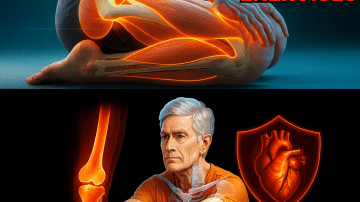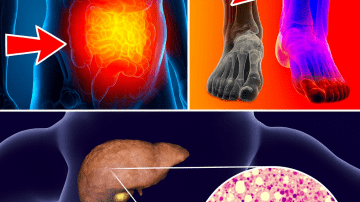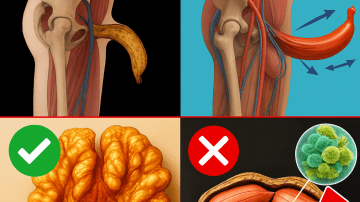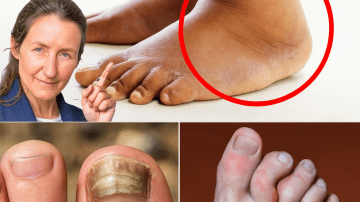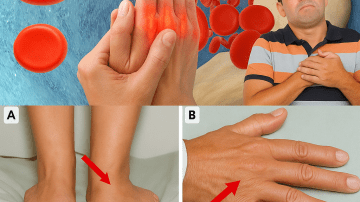What if that nagging ache under your ribs or unexplained tiredness is more than just a passing discomfort? Your liver, the silent workhorse of your body, could be sending subtle signals that something’s wrong—signals that could save your life if you catch them early. Liver cancer often lurks unnoticed, with 40% of cases diagnosed too late for effective treatment. Imagine sipping your morning coffee, unaware that your body is trying to tell you something critical.
Your liver filters toxins, fuels digestion, and keeps your energy steady, yet it’s often overlooked until a crisis hits. With over 40,000 new cases diagnosed annually in the U.S., liver cancer is a growing threat, but early detection can change everything. This guide unveils 11 early warning signs of liver cancer, backed by science and real-life stories, to empower you to act before it’s too late. Designed to captivate and inform, we’ll explore why these signs matter, what causes liver trouble, and how to protect your health. Let’s dive in and learn how to listen to your body’s whispers before they become screams.
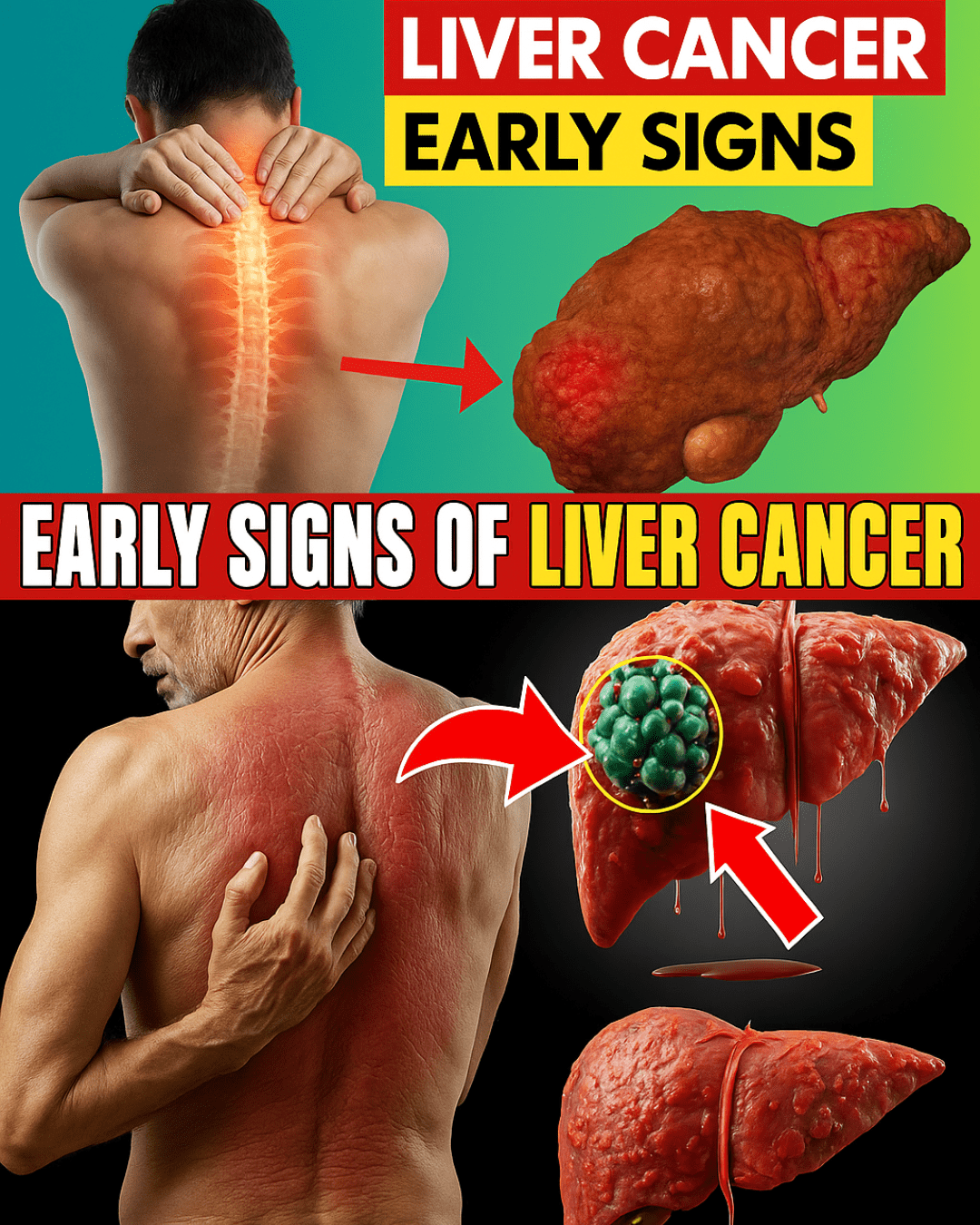
The Hidden Danger of Liver Cancer
Your liver is a powerhouse, processing nutrients, detoxifying your blood, and supporting nearly every bodily function. Yet, liver cancer—particularly hepatocellular carcinoma—can develop silently, with symptoms so vague they’re often mistaken for stress, aging, or minor ailments. Studies show liver cancer rates are rising, driven by factors like chronic hepatitis, alcohol use, and fatty liver disease. Left unchecked, it can lead to severe fatigue, pain, and life-altering complications.
The stakes are high: early-stage liver cancer is treatable, but late diagnoses drastically reduce survival rates. The good news? Recognizing subtle signs and acting promptly can slow or even prevent progression, preserving your vitality. Whether you’re feeling “off” or simply want to stay proactive, understanding these warning signs is a powerful step toward protecting your health.
11 Early Warning Signs of Liver Cancer
Liver cancer’s early symptoms are often subtle, easily dismissed as everyday annoyances. But catching them early could be life-saving. Here are 11 signs to watch for, each with a story and science to keep you engaged.
1. Unexplained Weight Loss
⚖️ Imagine your favorite jeans suddenly feeling loose, even though you haven’t changed your diet. Linda, 47, was puzzled when she dropped pounds without trying. Research shows unexplained weight loss can signal liver cancer, as tumors disrupt metabolism, causing your body to burn energy faster.
The persistent hollow feeling of hunger, despite eating, is a clue something’s amiss. Track your weight weekly—if you’re losing without effort, consult a doctor for blood tests to check liver function.
2. Persistent Fatigue
😴 Feeling drained despite a full night’s sleep? Mark, 50, struggled with daily tasks, his energy vanishing. Studies suggest liver cancer impairs energy production by affecting nutrient processing, leaving you exhausted.
This isn’t just tiredness—it’s a heavy, unrelenting drag. If rest doesn’t help, request blood tests for liver enzymes or anemia, which can reveal underlying issues.
3. Abdominal Pain or Swelling
🩺 A dull ache under your right ribs or a bloated belly could be more than indigestion. Susan, 46, ignored her discomfort until it worsened. Research indicates liver cancer can cause pain or swelling from tumors or fluid buildup (ascites).
The tender, unsettling ache demands attention. Reduce salty foods to ease swelling and see a doctor if pain persists for imaging like an ultrasound.
4. Loss of Appetite
🍽️ Pushing away your favorite meals? Tom, 48, lost his love for food, feeling full after a few bites. Studies show liver cancer disrupts appetite by altering metabolism and digestion.
An empty plate feels strange when you used to savor meals. Track your eating habits—if appetite doesn’t return within days, consult a doctor to explore liver health.
5. Yellowing Skin or Eyes (Jaundice)
🌞 Noticing a sallow complexion or yellow-tinged eyes in the mirror? Emma, 49, was startled by her jaundiced appearance. Research links jaundice to liver dysfunction, as cancer blocks bile ducts, causing bilirubin buildup.
This striking change is a red flag. See a doctor immediately for liver function tests to pinpoint the cause.
6. Nausea or Vomiting
🤢 Feeling queasy after meals, or even randomly? Jane, 47, battled constant nausea that disrupted her days. Studies suggest liver cancer impairs digestion, triggering nausea or vomiting as toxins accumulate.
The churning stomach feels relentless. If nausea persists, ask for blood tests or imaging to assess liver health.
7. Unexplained Itching
🩺 Itching that won’t quit, especially on your arms or legs? David, 51, scratched endlessly, confused by the sensation. Research shows liver cancer can cause itching from bile salt buildup in the skin.
This prickly frustration is more than dry skin. Use gentle moisturizers and see a doctor if itching lingers for liver function tests.
8. Dark Urine
🚻 Noticing your urine looks darker, like tea? This subtle change caught Linda’s attention. Studies link dark urine to liver issues, as excess bilirubin is excreted when bile flow is blocked.
Monitor urine color for a few days—if it stays dark, consult a doctor for a urinalysis to check for liver dysfunction.
9. Pale or Clay-Colored Stools
💡 Stools that look pale or grayish instead of brown? Mark was alarmed by this change. Research indicates liver cancer can disrupt bile production, leading to pale stools.
This unusual shift warrants attention. If stools remain pale for days, see a doctor for tests to evaluate bile flow and liver health.
10. Fever or Night Sweats
🌡️ Feeling feverish or waking up drenched in sweat? Susan experienced this without an obvious cause. Studies suggest liver cancer can trigger low-grade fevers or night sweats as the body responds to inflammation or tumor activity.
Track your temperature and symptoms—if fevers persist, consult a doctor for blood tests or imaging.
11. Easy Bruising or Bleeding
🩺 Bruising easily or noticing small cuts bleed longer? Emma was surprised by unexplained bruises. Research shows liver cancer can impair clotting factor production, leading to bruising or bleeding.
If bruises appear without injury, see a doctor for blood tests to check liver function and clotting ability.
The Emotional Weight of Liver Health
Liver cancer’s subtle signs can feel like a betrayal—your body is working hard, yet something’s off. Fatigue, pain, or yellowing skin can make you feel disconnected from the vibrant person you know you are. These changes can erode confidence, making you hesitant to engage in life’s joys. But recognizing these signs is an act of empowerment. By listening to your body, you’re taking control, ensuring you can savor moments with loved ones or pursue your passions with energy.
Each step you take to protect your liver is a commitment to yourself—a promise to live fully, no matter the challenge. This guide is here to arm you with knowledge and inspire action, helping you reclaim your vitality.
Common Causes and Risk Factors
Understanding what puts your liver at risk can help you stay proactive. Key causes include:
- Chronic Hepatitis: Hepatitis B or C infections can inflame the liver, increasing cancer risk.
- Cirrhosis: Scarring from alcohol, fatty liver, or hepatitis damages liver tissue, raising risk.
- Non-Alcoholic Fatty Liver Disease (NAFLD): Fat buildup in the liver, often linked to obesity, can progress to cancer.
- Alcohol Use: Excessive drinking over time scars the liver, heightening cancer risk.
- Diabetes: High blood sugar can contribute to fatty liver and inflammation.
- Family History: A genetic predisposition may increase vulnerability.
If you have these risk factors, regular screenings are essential. Blood tests for liver enzymes, alpha-fetoprotein (AFP), and imaging like ultrasounds can detect issues early, giving you a chance to act before damage escalates.
Real-Life Stories of Early Detection
Consider Linda, 47, who noticed unexplained weight loss and fatigue. She initially blamed stress, but a doctor’s visit revealed elevated liver enzymes. Early-stage liver cancer was caught via ultrasound, and with lifestyle changes and treatment, Linda avoided progression. Her energy returned, and she’s back to hiking with her family.
Then there’s Mark, 50, who ignored pale stools until a routine checkup. Tests showed early liver issues, prompting him to cut alcohol and adopt a liver-friendly diet. Within months, his symptoms improved, and his liver function stabilized. These stories highlight the power of early action—small steps can yield life-changing results.
Your Action Plan for Liver Health
Spotting warning signs is just the start. Here’s a three-step plan to stay vigilant and support your liver:
Step 1: Monitor Your Symptoms
📝 Keep a journal to track signs like fatigue, pain, or changes in urine or stools. Linda caught her weight loss early by noting patterns. Studies show symptom tracking improves outcomes by prompting timely medical visits. Check daily for persistent changes and share them with your doctor.
Step 2: Support Liver Health with Diet
🥗 Eat liver-friendly foods like leafy greens, berries, and fatty fish, rich in antioxidants and omega-3s. David felt better after adding spinach and blueberries to his meals. Research suggests these nutrients support liver function by reducing inflammation. Swap processed foods for whole, nutrient-dense options for daily benefits.
Step 3: Schedule Regular Checkups
🩺 Visit your doctor yearly for liver function tests and screenings. Susan’s routine blood work caught issues early, saving her from complications. Studies emphasize regular checkups detect problems before symptoms worsen. If you have risk factors like hepatitis or diabetes, prioritize annual tests for peace of mind.
| Warning Sign | Possible Cause | Why It Matters |
|---|---|---|
| Weight Loss | Metabolic disruption | Signals liver stress |
| Fatigue | Energy production issues | Indicates dysfunction |
| Abdominal Pain | Tumor or fluid buildup | Suggests liver issues |
| Jaundice | Bile flow blockage | Urgent warning sign |
| Itching | Bile salt buildup | Indicates liver strain |
| Step | How to Use | Safety Tips |
|---|---|---|
| Monitor Symptoms | Track daily in journal | Note persistent signs |
| Healthy Diet | Add greens, berries | Consult dietitian |
| Checkups | Yearly doctor visits | Discuss symptoms |
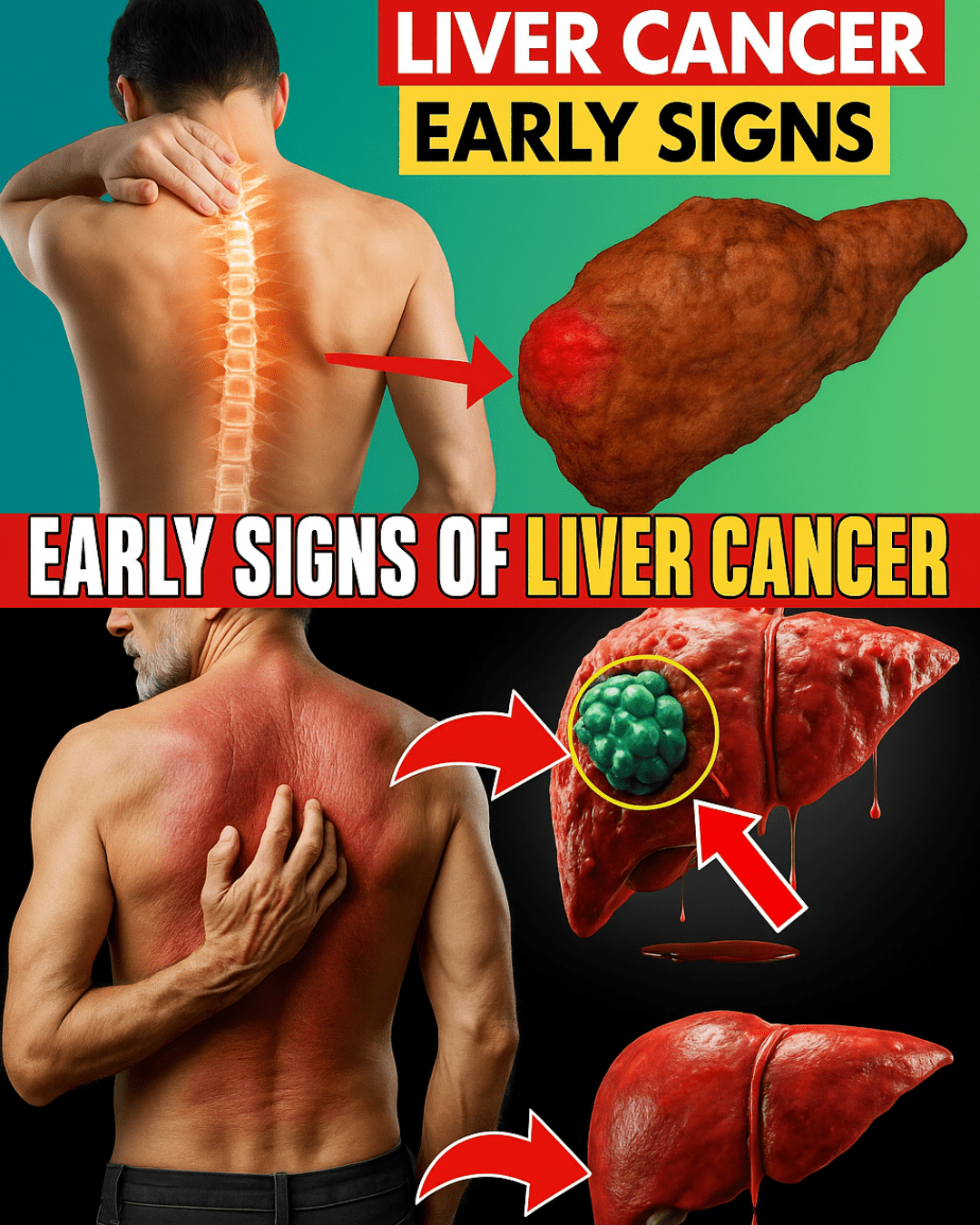
When to See a Doctor
Don’t wait for symptoms to escalate. Seek medical advice if you notice:
⚠️ Persistent changes in urination, stools, or skin color.
⚠️ Unexplained weight loss, fatigue, or swelling.
⚠️ Ongoing nausea, itching, or bruising.
⚠️ Blood pressure issues or frequent headaches.
Early tests, like liver function panels or imaging, can detect issues before they progress. If you have risk factors like hepatitis, diabetes, or heavy alcohol use, annual screenings are non-negotiable.
A Call to Protect Your Liver
Your liver is a silent hero, but its warning signs—fatigue, jaundice, itching—are easy to miss. By recognizing these 11 early symptoms, you’re empowering yourself to act before liver cancer takes hold. Pair awareness with a liver-friendly diet, hydration, and regular checkups, and you’re building a foundation for vibrant health.
Don’t ignore your body’s signals. Start tracking symptoms today, try a berry-packed smoothie, and schedule a checkup if you’re at risk. Share this guide with someone who might need it—because everyone deserves to thrive with a healthy liver. Bonus tip: sip water with lemon daily for a gentle liver hydration boost. Here’s to a life full of energy, clarity, and possibility.
This guide is for informational purposes only and does not replace professional medical advice. Consult your healthcare provider for personalized guidance.

